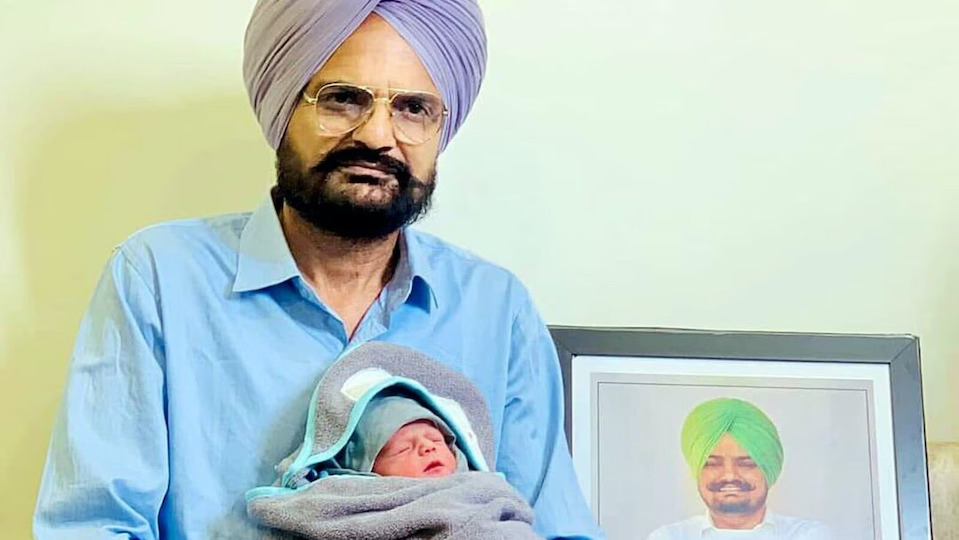[ad_1]
The current start of a child boy to the mother and father of Sidhu Moosewala has thrust the highlight onto the authorized intricacies and moral issues surrounding In-Vitro Fertilization (IVF) therapies in India. The Union Well being Ministry’s request to the Punjab authorities for an in depth report on Charan Kaur’s IVF therapy has ignited a debate on the authorized standing of the new child baby, particularly contemplating Kaur’s age on the time of the process and the laws stipulated beneath the ART (Assisted Reproductive Know-how) Act, 2021.
The case revolves round Charan Kaur, who underwent IVF therapy on the age of 58, looking for to conceive a baby along with her husband, Balkaur, almost two years after the tragic lack of their solely son, who was murdered in 2022. The controversy stems from the truth that Kaur’s age exceeds the higher restrict of fifty prescribed by the ART Act for girls present process ART procedures in India.
The Union Well being Ministry’s intervention, prompted by media stories, underscores the necessity for adherence to the regulatory framework governing assisted reproductive applied sciences.
In response to the scrutiny, Dr. Rajni Jindal, an IVF specialist at Jindal Coronary heart and Infertility Institute in Bathinda, the place the kid was born, has asserted compliance with authorized necessities. Dr. Jindal clarified that Charan Kaur had already conceived earlier than looking for therapy at their facility, and the start of the kid was facilitated following correct procedures and documentation.
Nevertheless, the controversy has led to allegations of harassment by Balkaur, who expressed frustration with the inquiries from the authorities.
Understanding India’s Assisted Reproductive Know-how (ART) Act
The ART Act, enacted in 2021, goals to make sure the secure and moral follow of ART procedures whereas safeguarding the pursuits of all events concerned. Assisted Reproductive Know-how (ART) encompasses a spread of procedures geared toward serving to people conceive a baby when pure conception proves difficult.
Key Provisions of the ART Act
1. Regulation of ART Clinics: The ART Act mandates the registration and accreditation of all ART clinics working in India. These clinics are required to adjust to prescribed requirements concerning infrastructure, gear, and experience to make sure the availability of secure and efficient ART providers.
2. Age Restrict for Ladies: One of many central provisions of the ART Act pertains to the age restrict for girls looking for ART providers. In line with the Act, girls between the ages of 21 and 50 are eligible to bear ART procedures. This age restriction is geared toward safeguarding the well being and well-being of each the girl and the potential baby.
3. Consent Necessities: The ART Act emphasizes the significance of knowledgeable consent from all events concerned in ART procedures. Sufferers have to be totally knowledgeable in regards to the nature of the procedures, potential dangers, and alternate options earlier than offering consent. Moreover, the Act prohibits the commercialization of human embryos and ensures that people can’t be coerced or exploited into collaborating in ART therapies.
4. Embryo Safety: The ART Act outlines stringent pointers for the dealing with and storage of human embryos to stop misuse and guarantee their safety. ART clinics are required to take care of correct data of all embryos and cling to prescribed protocols for his or her storage, use, and disposal.
5. Surrogacy Rules: Whereas the ART Act primarily focuses on ART procedures for infertility therapy, it additionally addresses the follow of surrogacy. The Act prohibits business surrogacy and stipulates that surrogacy preparations have to be altruistic in nature, with the surrogate mom endeavor the being pregnant out of compassion fairly than for monetary achieve.
Exceptions and Issues
Whereas the ART Act establishes clear pointers for the follow of ART in India, sure exceptions and issues might apply in particular circumstances. For instance:
1. Medical Exceptions: In instances the place there are compelling medical causes, reminiscent of untimely ovarian failure or most cancers therapy affecting fertility, exceptions to the age restrict could also be thought of beneath the steerage of medical professionals and regulatory authorities.
2. Analysis and Innovation: The ART Act acknowledges the significance of scientific analysis and innovation in advancing reproductive medication. Nevertheless, any analysis involving ART procedures should adhere to moral ideas and regulatory oversight to make sure the security and well-being of contributors.
3. Worldwide Collaborations: With the globalization of healthcare providers, Indian sufferers might search ART therapies overseas, the place laws and practices might differ. In such instances, it’s important for people to concentrate on the authorized and moral implications of present process ART procedures in international nations and to make sure compliance with Indian laws upon their return.
Making certain Security and Moral Observe
The implementation of the ART Act is significant for guaranteeing the security, efficacy, and moral follow of ART procedures in India. Regulatory authorities, together with the Nationwide Board for Regulation and Supervision of ART Clinics (NABHART), play a vital position in monitoring compliance with the Act and imposing requirements throughout ART clinics nationwide.
Conclusion
The case of Sidhu Moosewala’s mother and father underscores broader points surrounding IVF legal guidelines and practices in India. Whereas developments in reproductive applied sciences provide hope to numerous {couples} fighting infertility, additionally they elevate complicated moral dilemmas concerning age limits, consent, and regulatory oversight.
Because the investigation unfolds, it’s crucial for authorities to make sure transparency, equity, and adherence to authorized requirements. Furthermore, this case serves as a reminder of the urgent want for steady analysis and refinement of current legal guidelines to handle rising challenges and uphold the rights and welfare of all stakeholders concerned in assisted replica.
[ad_2]
Source link







